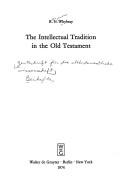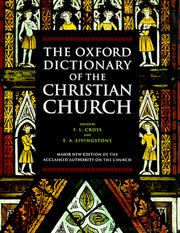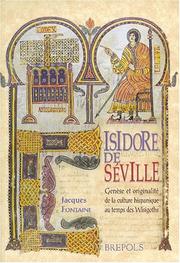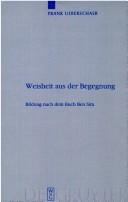| Listing 1 - 10 of 12 | << page >> |
Sort by
|
Multi
ISBN: 9781107019065 9781107698505 1107698502 9781139094030 9781139526098 113952609X 1139094033 1107019060 1139540084 1316089762 1139531956 1139528483 1139530763 1283637472 1139527290 9781139528481 Year: 2012 Publisher: New York Cambridge University Press
Abstract | Keywords | Export | Availability | Bookmark
 Loading...
Loading...Choose an application
- Reference Manager
- EndNote
- RefWorks (Direct export to RefWorks)
This book provides a richly rewarding vision of the burgeoning interdisciplinary field of somaesthetics. Composed of fourteen wide-ranging but finely integrated essays by Richard Shusterman, the originator of the field, Thinking through the Body explains the philosophical foundations of somaesthetics and applies its insights to central issues in ethics, education, cultural politics, consciousness studies, sexuality and the arts. Integrating Western philosophy, cognitive science and somatic methodologies with classical Asian theories of body, mind and action, these essays probe the nature of somatic existence and the role of body consciousness in knowledge, memory and behavior. Deploying somaesthetic perspectives to analyze key aesthetic concepts (such as style and the sublime), he offers detailed studies of embodiment in drama, dance, architecture and photography. The volume also includes somaesthetic exercises for the classroom and explores the ars erotica as an art of living.
ethics [philosophy] --- Aesthetics --- Philosophy --- Aesthetics. --- Human body (Philosophy). --- Humanities --- Philosophy. --- Study and teaching (Higher) --- 7.01 --- 130.2 --- antropologie --- lichamelijkheid --- kunsttheorie --- esthetica --- 1 --- filosofie --- Study and teaching (Higher). --- Human body (Philosophy) --- Learning and scholarship --- Classical education --- Body, Human (Philosophy) --- Beautiful, The --- Beauty --- Esthetics --- Taste (Aesthetics) --- Art --- Criticism --- Literature --- Proportion --- Symmetry --- Psychology --- Arts and Humanities --- Radio broadcasting Aesthetics
Book
ISBN: 3402047926 9783402047927 Year: 2003 Volume: 44 Publisher: Münster: Aschendorff,
Abstract | Keywords | Export | Availability | Bookmark
 Loading...
Loading...Choose an application
- Reference Manager
- EndNote
- RefWorks (Direct export to RefWorks)
Bible --- Wisdom (Biblical personification) --- Wisdom --- Religious aspects --- Christianity. --- Judaism. --- 225 <082> --- Bijbel: Nieuw Testament--Feestbundels. Festschriften --- Festschrift - Libri Amicorum --- Experience --- Intellect --- Learning and scholarship --- Reason --- Ḥokhmah (Biblical personification) --- Sophia (Biblical personification) --- Wisdom (Biblical character) --- Personification in the Bible --- Religious aspects&delete& --- Christianity --- Judaism --- Criticism, interpretation, etc. --- Biblia --- Wisdom - Religious aspects - Christianity. --- Wisdom - Religious aspects - Judaism.

ISBN: 3110044242 9783110044249 3110830043 Year: 1974 Volume: 135 Publisher: Berlin: de Gruyter,
Abstract | Keywords | Export | Availability | Bookmark
 Loading...
Loading...Choose an application
- Reference Manager
- EndNote
- RefWorks (Direct export to RefWorks)
Wisdom literature --- Wisdom --- Criticism, interpretation, etc --- Biblical teaching --- 223.4 --- -Wisdom literature --- -Literature --- Experience --- Intellect --- Learning and scholarship --- Reason --- Boek der Spreuken --- -Boek der Spreuken --- 2234 --- -Boek der Spreuken. --- Biblical teaching. --- Criticism, interpretation, etc. --- History and criticism --- Wisdom literature - Criticism, interpretation, etc --- Wisdom - Biblical teaching

ISBN: 019211655X 9780192116550 Year: 1997 Publisher: Oxford: Oxford university press,
Abstract | Keywords | Export | Availability | Bookmark
 Loading...
Loading...Choose an application
- Reference Manager
- EndNote
- RefWorks (Direct export to RefWorks)
Christian church history --- Christianity --- Theology --- Christianisme --- Théologie --- Dictionaries --- Dictionnaires anglais --- 28 <03> --- 27 <03> --- -Christianity --- Religions --- Church history --- Christelijke kerken, secten. Kristelijke kerken--(algemeen)--Naslagwerken. Referentiewerken --- Kerkgeschiedenis--Naslagwerken. Referentiewerken --- Dictionaries. --- -Christelijke kerken, secten. Kristelijke kerken--(algemeen)--Naslagwerken. Referentiewerken --- Théologie --- Christianity - Dictionaries --- encyclopedia --- dictionary of the Christian Church --- the Christian Church --- theology --- patristic scholarship --- churches and denominations --- church calendar --- church organization --- the Bible --- biographies of leading figures in Christianity
Book
ISBN: 9789004314764 9004314768 9789004314771 9004314776 Year: 2016 Volume: 68 68 Publisher: Leiden ;Boston Brill
Abstract | Keywords | Export | Availability | Bookmark
 Loading...
Loading...Choose an application
- Reference Manager
- EndNote
- RefWorks (Direct export to RefWorks)
This collection of essays is focused on the wisdom traditions of the Hebrew Bible, including the Book of Sira. The biblical books are read as literary works on their own as well as in an ancient Near Eastern setting. Some essays scrutinize Greek and Hellenistic wisdom traditions. The authors refrain from a definition of 'wisdom' which would have been a reductionist exercise in view of the great variety of material and the complexity of the perennial problems (wo)mankind is confronted with.
Wisdom --- Biblical teaching --- Bible. --- Criticism, interpretation, etc. --- 221 <063> --- Academic collection --- Experience --- Intellect --- Learning and scholarship --- Reason --- Bijbel: Oud Testament--Congressen --- Antico Testamento --- Hebrew Bible --- Hebrew Scriptures --- Kitve-ḳodesh --- Miḳra --- Old Testament --- Palaia Diathēkē --- Pentateuch, Prophets, and Hagiographa --- Sean-Tiomna --- Stary Testament --- Tanakh --- Tawrāt --- Torah, Neviʼim, Ketuvim --- Torah, Neviʼim u-Khetuvim --- Velho Testamento --- Conferences - Meetings --- Bible --- Criticism, interpretation, etc --- Congresses --- Wisdom - Biblical teaching - Congresses.

ISBN: 250350955X 9782503509556 Year: 2000 Volume: *15 Publisher: Turnhout: Brepols,
Abstract | Keywords | Export | Availability | Bookmark
 Loading...
Loading...Choose an application
- Reference Manager
- EndNote
- RefWorks (Direct export to RefWorks)
History of civilization --- Isidore of Seville --- Biographies --- Espagne ; histoire du Moyen Age --- Isidore de Séville --- Isidore van Sevilla --- Levensbeschrijvingen --- Spanje ; geschiedenis van de Middeleeuwen --- Visigoths --- Learning and scholarship --- Wisigoths --- Savoir et érudition --- Isidore, --- Spain --- Espagne --- Civilization --- Civilisation --- 27 <460> "03/06" --- Kerkgeschiedenis--Spanje--?"03/06" --- Isidore of Seville, Saint --- Savoir et érudition --- Isidoro, --- Isidor, --- Isidorus, --- Seville, Isidore of, --- Sevilla, Isidoro de --- De Sevilla, Isidoro, --- Sevilla, Isidor von, --- Von Sevilla, Isidor, --- Izydor, --- Isidorus Hispalensis --- Isidore --- Isidore, - of Seville, Saint, - d. 636 --- Isidore of Seville, Saint, d. 636 --- Isidore de seville, 560?-636
Book
Abstract | Keywords | Export | Availability | Bookmark
 Loading...
Loading...Choose an application
- Reference Manager
- EndNote
- RefWorks (Direct export to RefWorks)
Dit boek reikt enkele gedachten voor een bezinning op opvoeding vandaag. Het wil mensen aan het denken en spreken zetten rond de vraag : hoe opvoeding op een verantwoorde wijze bij de tijd brengen?
Christelijke ethiek --- Don Bosco, Heilige --- Don Bosco, Saint --- Education --- Ethique chrétienne --- Opvoeding --- 37.01 --- -#gsdbP --- #GGSB: Pedagogie --- #gsdbQ620.4 --- C6 --- opvoeding --- bezinning --- Sint-Giovanni Bosco (Don Bosco) (x) --- 432 )* THEORETISCHE OPVOEDKUNDE --- opvoeden --- Don Bosco --- Opvoeden --- Children --- Education, Primitive --- Education of children --- Human resource development --- Instruction --- Pedagogy --- Schooling --- Students --- Youth --- Civilization --- Learning and scholarship --- Mental discipline --- Schools --- Teaching --- Training --- Grondslagen van de opvoeding --- Philosophy --- Opvoeding, onderwijs, wetenschap --- Bosco, Giovanni Saint --- Philosophy. --- 37.01 Grondslagen van de opvoeding --- #gsdbP --- Bosco, Giovanni, --- Baba Bosco, --- Bosco, --- Bosco, Jean-Melchior, --- Bosco, Jean, --- Bosco, João, --- Bosco, John, --- Bosco, Juan, --- Bosko, Jonas, --- Dom Bosco, --- Don Bosco, --- João Bosco, --- John Bosco, --- Pedagogie
Book
ISBN: 9783110335491 9783110335781 3110335786 3110335492 9783110335798 3110335794 9781306462600 1306462606 3110372924 9783110372922 Year: 2014 Volume: 456 Publisher: Berlin De Gruyter
Abstract | Keywords | Export | Availability | Bookmark
 Loading...
Loading...Choose an application
- Reference Manager
- EndNote
- RefWorks (Direct export to RefWorks)
This book employs cognitive linguistics to determine the foundational elements of the ancient Israelites' concept of teaching as reflected in the text of the Hebrew Bible and Ben Sira. It analyzes four prominent lexemes that comprise a lexical set referring to the act of teaching: ירה-H, למד-D, ידע-H, and יסר-D. The study concludes that, in its most basic form, the concept of teaching in ancient Israel was that a teacher creates the conditions in which learning can occur. The methodology employed in this project is built on a premise of cognitive studies, namely, that because teaching is a universal human activity, there is a universal concept of teaching: one person A recognizes that another person B lacks knowledge, belief, skills, and the like (or has incomplete or distorted knowledge, etc.), and person A attempts to bring about a changed state of knowledge, belief, or skill in person B. This universal concept provides the starting place for understanding the concept of teaching that Biblical Hebrew reflects, and it also forms the conceptual base against which the individual lexemes are profiled. The study incorporates a micro-level analysis and a macro-level analysis. At the micro-level, each lexeme is examined with respect to its linguistic forms (the linguistic analysis) and the contexts in which the lexeme occurs (the conceptual analysis). The linguistic analysis considers the clausal constructions of each instantiation and determines what transitivity, ditransitivity, or intransitivity contributes to the meaning. Collocations of the lexeme, including prepositional phrases, adverbial adjuncts, and parallel verbs, are evaluated for their contribution to meaning. The conceptual analysis of each lexeme identifies the meaning potential of each word, as well as what aspect of the meaning potential each instantiation activates. The study then determines the lexeme's prototypical meaning, which is profiled on the base of the universal concept of teaching. This step of profiling represents an important adaptation of the cognitive linguistics tool of profiling to meet the special requirements of working with ancient texts in that it profiles prototype meanings, not instantiations. In the macro-analysis, the data of all four lexemes in the lexical set are synthesized. The relationships among the lexemes are assessed in order to identify the basic level lexeme and consider whether the lexemes form a folk taxonomy. Finally, the profiles of the four prototype meanings are collated and compared in order to describe the ancient Israelite concept of teaching. The study finds that the basic level item of the lexical set is למד-D based on frequency of use and distribution. In its prototypical definition, למד-D means to intentionally put another person in a state in which s/he can acquire a skill or expertise through experience and practice. In contrast to this sustained kind of teaching, the prototypical meaning of ירה-H is situational in nature: a person of authority or expertise gives specific, situational instruction to someone who lacks knowledge about what to do. The lexemes יסר-D and ידע-H represent the most restricted and the most expansive lexemes, respectively: the prototypical meaning of יסר-D is to attempt to bring about changed behavior in another person through verbal or physical means, often to the point of causing pain; the prototypical meaning of ידע-H is that a person of authority causes another person to be in a state of knowing something from the divine realm or related to experiences with the divine realm. The study determines that while the four lexemes of the Biblical Hebrew lexical set "to teach" have significant semantic overlap, they cannot be construed in a folk taxonomy because the words are not related in a hierarchical way.
Jews --- Education --- Teaching --- History --- Philosophy --- 221.015 --- Didactics --- Instruction --- Pedagogy --- School teaching --- Schoolteaching --- Instructional systems --- Pedagogical content knowledge --- Training --- Children --- Education, Primitive --- Education of children --- Human resource development --- Schooling --- Students --- Youth --- Civilization --- Learning and scholarship --- Mental discipline --- Schools --- Hebrews --- Israelites --- Jewish people --- Jewry --- Judaic people --- Judaists --- Ethnology --- Religious adherents --- Semites --- Judaism --- Oud Testament: literaire kritiek; authenticiteit; bronnenstudie; Formgeschiche; Traditionsgeschichte; Redaktionsgeschichte --- 221.015 Oud Testament: literaire kritiek; authenticiteit; bronnenstudie; Formgeschiche; Traditionsgeschichte; Redaktionsgeschichte --- Jews - Education - History - To 70 AD --- Education - Philosophy - History - To 70 AD --- Teaching - Philosophy - History - To 70 AD --- Biblical Hebrew. --- Cognitive linguistics. --- semantic analysis. --- teaching.
Book
ISBN: 3161448286 9783161448287 Year: 1984 Volume: 12 Publisher: Tübingen: Mohr,
Abstract | Keywords | Export | Availability | Bookmark
 Loading...
Loading...Choose an application
- Reference Manager
- EndNote
- RefWorks (Direct export to RefWorks)
Education --- Christian education --- Christian literature, Early --- History --- History and criticism --- 281.2 --- -Christian literature, Early --- -Christian education --- -#GROL:SEMI-225.08*3 --- Education, Christian --- Religious education --- Theology, Practical --- Spiritual formation --- Theology --- Early Christian literature --- Patristic literature --- Children --- Education, Primitive --- Education of children --- Human resource development --- Instruction --- Pedagogy --- Schooling --- Students --- Youth --- Civilization --- Learning and scholarship --- Mental discipline --- Schools --- Teaching --- Training --- Apostolische Kerk. Judeo-christianisme:--tot einde 1ste eeuw --- -Study and teaching --- -281.2 --- 281.2 Apostolische Kerk. Judeo-christianisme:--tot einde 1ste eeuw --- -Education --- #GROL:SEMI-225.08*3 --- Church history --- Education - History --- Christian education - History - Early church, ca 30-600 --- Christian literature, Early - History and criticism

ISBN: 9783110200645 3110200643 Year: 2007 Volume: 379 Publisher: Berlin: de Gruyter,
Abstract | Keywords | Export | Availability | Bookmark
 Loading...
Loading...Choose an application
- Reference Manager
- EndNote
- RefWorks (Direct export to RefWorks)
Wisdom --- Education --- Bible --- 223.7 --- Wijsheid. Wijsheid van Jesus Sirach (Ecclesiasticus) --- Experience --- Intellect --- Learning and scholarship --- Reason --- Children --- Education, Primitive --- Education of children --- Human resource development --- Instruction --- Pedagogy --- Schooling --- Students --- Youth --- Civilization --- Mental discipline --- Schools --- Teaching --- Training --- Bible. --- Ben Sira (Book of the Apocrypha) --- Book of Ben Sira (Book of the Apocrypha) --- Book of Sirach (Book of the Apocrypha) --- Ecclesiasticus (Book of the Apocrypha) --- Ḥokhmat Shimʻon ben Sira (Book of the Apocrypha) --- Ḥokhmat Yehoshuʻa ben Sira (Book of the Apocrypha) --- Jesus Sirach (Book of the Apocrypha) --- Sefer Ben Sira (Book of the Apocrypha) --- Sefer Ḥokhmat Yehoshuʻa ben Sira (Book of the Apocrypha) --- Sirach (Book of the Apocrypha) --- Sirachbuch (Book of the Apocrypha) --- Wisdom of Ben Sira (Book of the Apocrypha) --- Wisdom of Jesus the Son of Sirach (Book of the Apocrypha) --- Wisdom of Sirach (Book of the Apocrypha) --- Words of Simeon ben Jeshua (Book of the Apocrypha)
| Listing 1 - 10 of 12 | << page >> |
Sort by
|

 Search
Search Feedback
Feedback About UniCat
About UniCat  Help
Help News
News